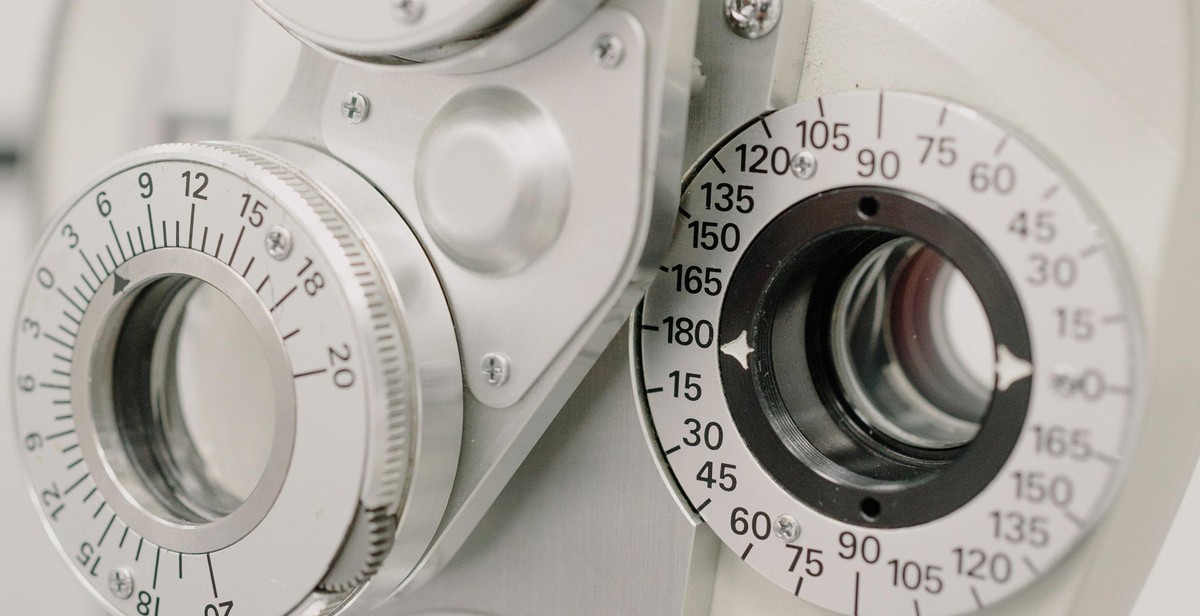How to Implement Effective Supply Chain Management in a Hospital Setting
Supply chain management is the process of managing the flow of goods and services from the point of origin to the point of consumption. In a hospital setting, effective supply chain management is crucial for ensuring that patients receive the best possible care. It involves the coordination of various activities such as procurement, inventory management, and distribution of medical supplies and equipment.
What is Supply Chain Management?
Supply chain management is a complex process that involves the coordination of multiple stakeholders, including suppliers, manufacturers, distributors, and retailers. It seeks to optimize the flow of goods and services, reduce costs, and improve customer satisfaction.
In a hospital setting, supply chain management is critical for ensuring that medical supplies and equipment are available when needed. It involves the procurement of medical supplies and equipment, inventory management, and distribution of these supplies to various departments within the hospital.
Why is Supply Chain Management Important in a Hospital Setting?
Effective supply chain management is crucial in a hospital setting for several reasons. Firstly, it ensures that medical supplies and equipment are available when needed, reducing the risk of delays in patient care. Secondly, it helps to reduce costs by optimizing inventory levels and reducing waste. Finally, it improves patient satisfaction by ensuring that the hospital has the necessary supplies and equipment to provide high-quality care.
Overall, effective supply chain management is essential for ensuring that hospitals can provide high-quality care to their patients. By optimizing the flow of goods and services, reducing costs, and improving customer satisfaction, hospitals can improve their overall efficiency and effectiveness.

Key Components of Effective Supply Chain Management
Effective supply chain management involves a well-coordinated effort to ensure that every component of the supply chain is working optimally to achieve the desired goals. In a hospital setting, effective supply chain management is critical to ensure that the right supplies are available at the right time to support patient care. Here are the key components of effective supply chain management:
Inventory Management
Inventory management is the process of monitoring and controlling the inventory levels to ensure that the right supplies are available at the right time. Hospital supply chain managers need to have a clear understanding of the inventory levels, demand patterns, and lead times to ensure that inventory levels are optimized. This will help to prevent stockouts, reduce wastage, and ensure that the hospital has the necessary supplies to support patient care.
Vendor Management
Vendor management involves building and maintaining relationships with suppliers and vendors to ensure that the hospital gets the best value for money. This involves negotiating favorable terms, monitoring supplier performance, and ensuring that the hospital receives high-quality supplies at the right price.
Logistics Management
Logistics management involves the coordination of the movement of supplies from the suppliers to the hospital and within the hospital. This involves managing transportation, warehousing, and distribution to ensure that supplies are delivered to the right place at the right time. Effective logistics management can help to reduce costs, improve efficiency, and ensure that the hospital has the necessary supplies to support patient care.
Data and Analytics
Data and analytics play a critical role in effective supply chain management. Hospital supply chain managers need to have access to accurate and timely data to make informed decisions about inventory levels, supplier performance, and logistics management. Analytics can also be used to identify trends, patterns, and opportunities for improvement in the supply chain.
Communication and Collaboration
Effective communication and collaboration are essential for effective supply chain management. Hospital supply chain managers need to work closely with other departments, such as nursing, finance, and procurement, to ensure that the supply chain is aligned with the needs of the hospital. Clear communication and collaboration can help to prevent misunderstandings, reduce errors, and ensure that the hospital has the necessary supplies to support patient care.
| Component | Description |
|---|---|
| Inventory Management | Monitoring and controlling inventory levels to ensure the availability of the right supplies at the right time. |
| Vendor Management | Building and maintaining relationships with suppliers and vendors to ensure that the hospital gets the best value for money. |
| Logistics Management | Coordinating the movement of supplies from suppliers to the hospital and within the hospital. |
| Data and Analytics | Using data and analytics to make informed decisions about inventory levels, supplier performance, and logistics management. |
| Communication and Collaboration | Working closely with other departments to ensure that the supply chain is aligned with the needs of the hospital. |

Challenges in Implementing Effective Supply Chain Management in a Hospital Setting
Supply chain management in a hospital setting is a complex and challenging process due to various factors. Hospitals are dynamic, fast-paced environments that require timely and accurate delivery of medical supplies, equipment, and pharmaceuticals to ensure quality patient care. However, several challenges must be addressed to implement effective supply chain management in a hospital setting.
Lack of Standardization
One of the significant challenges in implementing effective supply chain management in a hospital setting is the lack of standardization. Different departments within the hospital may have different processes for ordering and managing supplies, leading to inefficiencies and increased costs. Standardizing supply chain processes and implementing a centralized inventory management system can help mitigate this challenge.
Resistance to Change
Another challenge in implementing effective supply chain management in a hospital setting is resistance to change. Healthcare professionals may be resistant to changing their current processes, even if they are inefficient. Overcoming this resistance requires effective communication and education to help stakeholders understand the benefits of implementing a more effective supply chain management system.
Limited Resources
Limited resources, including staffing and financial resources, can also pose challenges in implementing effective supply chain management in a hospital setting. Hospitals may need to allocate additional resources to implement and maintain a centralized inventory management system. However, the long-term benefits of improved supply chain management, including cost savings and improved patient outcomes, make this investment worthwhile.
Complexity of Healthcare Operations
The complexity of healthcare operations is another challenge in implementing effective supply chain management in a hospital setting. Hospitals must manage a wide range of medical supplies and equipment, each with different storage and handling requirements. Additionally, hospitals must comply with various regulations and standards related to medical supplies and equipment, adding to the complexity of supply chain management.
| Challenges | Solutions |
|---|---|
| Lack of Standardization | Standardize supply chain processes and implement a centralized inventory management system |
| Resistance to Change | Effective communication and education to help stakeholders understand the benefits of implementing a more effective supply chain management system |
| Limited Resources | Allocate additional resources to implement and maintain a centralized inventory management system |
| Complexity of Healthcare Operations | Implement a comprehensive supply chain management system that takes into account the storage and handling requirements of different medical supplies and equipment, as well as compliance with regulations and standards |

Strategies for Implementing Effective Supply Chain Management in a Hospital Setting
Supply chain management (SCM) is critical in the healthcare industry, especially in a hospital setting, where the availability of medical supplies and equipment can mean the difference between life and death. Here are some strategies for implementing effective supply chain management in a hospital setting:
Establishing Standard Operating Procedures
One of the first steps in implementing effective supply chain management is establishing standard operating procedures (SOPs) for inventory management, order processing, and delivery. SOPs ensure that all staff members follow the same procedures, reducing errors and ensuring that supplies are always available when needed. These procedures should be regularly reviewed and updated to ensure that they remain effective.
Investing in Technology and Automation
Investing in technology and automation can help streamline supply chain management processes, reduce costs, and improve efficiency. Tools such as inventory management software, automated ordering systems, and RFID tracking technology can help hospitals track inventory levels, reduce waste, and ensure that supplies are always available when needed.
Collaborating with Vendors and Suppliers
Collaborating with vendors and suppliers can help hospitals negotiate better prices, ensure that supplies are delivered on time, and improve supply chain visibility. Hospitals should establish partnerships with reliable vendors and suppliers and work closely with them to ensure that they meet the hospital’s needs.
Training and Education
Training and education are essential for ensuring that staff members understand the importance of effective supply chain management and how to follow established procedures. Hospitals should provide regular training sessions and workshops to educate staff members on inventory management, order processing, and delivery procedures.
Continuous Improvement
Continuous improvement is critical in supply chain management. Hospitals should regularly review their supply chain processes, identify areas for improvement, and implement changes to improve efficiency and reduce costs. This can involve analyzing data on inventory levels, order processing times, and delivery times and making adjustments to improve performance.
| Strategies | Benefits |
|---|---|
| Establishing SOPs | Reduce errors, ensure supplies are always available |
| Investing in technology and automation | Streamline processes, reduce costs, improve efficiency |
| Collaborating with vendors and suppliers | Negotiate better prices, improve supply chain visibility |
| Training and education | Ensure staff members understand procedures |
| Continuous improvement | Identify areas for improvement, improve efficiency and reduce costs |

Benefits of Effective Supply Chain Management in a Hospital Setting
Supply chain management is a critical component of any hospital’s operations. When managed effectively, it can lead to numerous benefits that improve patient outcomes, increase efficiency, and save costs. Below are some of the top benefits of effective supply chain management in a hospital setting:
Improved Patient Outcomes
One of the primary benefits of effective supply chain management in a hospital setting is improved patient outcomes. By ensuring that the right supplies and equipment are available when needed, healthcare providers can provide better care to patients. For example, having the right medical supplies on hand can help prevent infections and reduce the risk of complications during procedures.
Cost Savings
Effective supply chain management can also lead to significant cost savings for hospitals. By streamlining processes and reducing waste, hospitals can save money on supplies and equipment. Additionally, having a better understanding of supply chain costs can help hospitals negotiate better pricing with vendors.
Increased Efficiency
Efficient supply chain management can help hospitals operate more efficiently. By automating processes and using data to make informed decisions, hospitals can reduce the time and resources required to manage their supply chain. This can free up staff to focus on other critical tasks, such as patient care.
Enhanced Visibility and Transparency
Effective supply chain management can also provide hospitals with enhanced visibility and transparency into their operations. By using data analytics and tracking tools, hospitals can monitor their supply chain in real-time and identify areas for improvement. This can help hospitals make informed decisions and improve their overall performance.
Overall, effective supply chain management is essential for hospitals to provide high-quality care to patients while also managing costs and increasing efficiency. By implementing best practices and leveraging technology, hospitals can reap the benefits of a well-managed supply chain.

Conclusion
Effective supply chain management is crucial for the success of any healthcare organization, especially hospitals. In this article, we have discussed the key points that healthcare managers need to consider in order to implement effective supply chain management in a hospital setting.
Summary of Key Points
- Hospitals need to have a well-defined supply chain management strategy that aligns with their overall business goals.
- Effective supply chain management requires collaboration and communication between all stakeholders, including suppliers, distributors, and internal departments.
- Data analytics and technology can help hospitals optimize their supply chain management processes, improve inventory management, and reduce costs.
- Hospitals should prioritize patient safety and quality of care when making supply chain management decisions.
Importance of Effective Supply Chain Management in Healthcare
Effective supply chain management is important for healthcare organizations because it can help them:
- Improve patient outcomes by ensuring that the right supplies and equipment are available at the right time.
- Reduce costs by optimizing inventory management and minimizing waste.
- Streamline processes and reduce administrative burden, allowing healthcare professionals to focus on patient care.
- Ensure compliance with regulatory requirements and standards.
| Key Takeaway: | Effective supply chain management is essential for hospitals to provide high-quality patient care while minimizing costs and ensuring compliance with regulatory requirements. |
By following the key points discussed in this article, healthcare managers can implement effective supply chain management practices in their hospitals and achieve these benefits.
